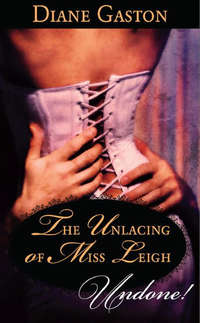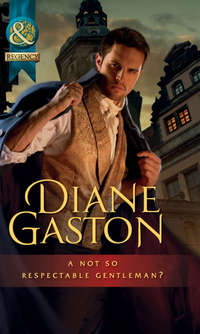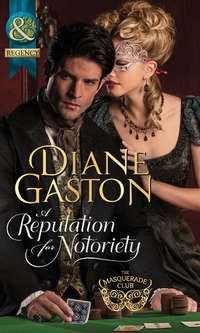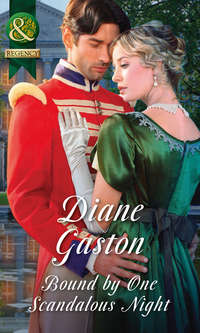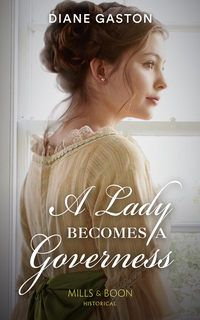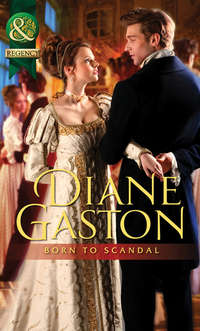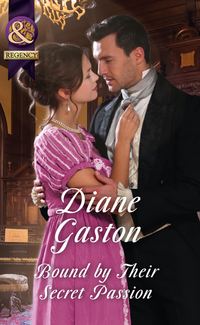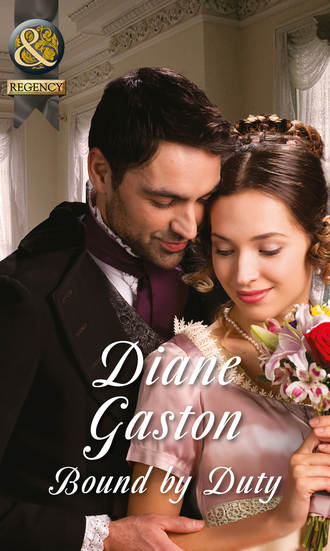
Полная версия
Bound by Duty
She glanced at the wooded area next to the road. If this were home, she’d know precisely how to cut through the woods and cross the fields. She might be home already, sitting in front of a fire, letting the heat penetrate instead of this rain. Here she did not dare leave the road that she knew led to Tinmore Village.
Do not think, she told herself. Just put one foot in front of the other. Despair nudged at her resolve.
She walked and walked until she thought she saw a vague outline of the village church tower. She hurried on, but up ahead water was streaming across the road. She could not go forward. She could not go back.
But she could go home, home to Yardney, at least. Perhaps she would seek shelter at Mr Welton’s aunt’s house. Or knock at the door of Summerfield House.
She turned back, retracing her steps, passing the road leading to the blocked bridge. A short distance from there, the road was flooded. Turning back again, she walked until she found another road, not knowing where it would lead her.
If only she were closer to home. She would be able to turn in any direction and find someone’s house who would welcome her, but she no longer knew where she was or how to find her way to anywhere familiar. She was lost, wet and terribly cold.
Chapter Two
Marc Glenville cursed the rain.
Why there must be a downpour while he was on horseback on his way to London was beyond him. Unless the gods of weather somehow caught his mood.
Returning to London was never a joy.
But there was nothing else for him to do. His business in Scotland was complete.
His horse faltered and his head dipped. A stream of water trickled down his back.
Business in Scotland. Ha!
That was the fiction he told his parents and would tell anyone else who questioned his whereabouts these last long months, but it was not the truth.
He’d been to France. Paris and the countryside, mixing with Bonapartists and others discontented with returning Louis XVIII to the throne, keeping an ear tuned to whether discontent was apt to erupt in insurrection.
All for king and country.
Unrest was not widespread. The French, like the British, were fatigued with war. Mark had made his reports. No more would be asked of him.
It was time to face more personal matters.
Time to face again the fact that his brother would never again grin at him from across the dinner table and his best friend would never again come to call. When he was pretending to be Monsieur Renard, citoyen ordinaire of France, he could almost forget that Lucien, his brother, had been gone for four years and Charles, not quite three. Whenever he returned, though, he half-expected to see them walk through the door when he was home.
Grief shot through him like a bolt of lightning.
Foolish Lucien. Reckless Charles. They’d died so needlessly.
Marc willed his emotions to cool, lifting his face to the rain that was already chilling his bones. Best to keep emotions in control. When deep in espionage, it could save his life; back in London, it might save his sanity.
Good God. Was the near-freezing rain begetting gloomy thoughts as well as soaking him to the bone? Concentrate on the road and on his poor horse. Slogging through muddy, rut-filled roads was a battle, even for the sturdy fellow.
The stallion blew out a breath.
‘Hard going, eh, Apollo?’ Marc patted the horse’s neck.
He’d hoped to reach Peterborough by nightfall, but that was not in the cards in this weather. He’d be lucky to make the next village, whatever that was, and hope its inn had a room with a clean bed.
The rain had forced him off the main route and he and Apollo were inching their way through any roads that remained passable.
The delay did not bother him overmuch. No one was expecting him. He’d not informed his parents he was coming to town. Let it be a surprise.
Marc dreaded the family visit, always, but it was time to take his place as heir, now that duty did not call him elsewhere. He’d call upon Doria Caldwell, Charles’s sister, and make official what had been implied between them since Charles was killed. He owed that much to Charles.
Besides, the Caldwell family, now consisting only of her and her father, was so ordinary and respectable—and rational—he would relish being a part of it.
Lightning flashed through the sky and thunder boomed. Was he now to be struck by real lightning, instead of being struck figuratively?
He must be near a village; he’d been riding long enough. Gazing up ahead, he hoped to see rooftops in the distance or a road sign or any indication that shelter might be near, but the rain formed a grey curtain that obscured all but a few feet in front of him. What’s more, the curtain seemed to move with him, keeping him engulfed in the gloom and making his eyelids grow heavy.
Lightning flashed again and he thought he’d seen someone in the road. He peered harder until through the curtain of rain a figure took form. It was a woman on foot, not yet hearing his horse coming up from behind.
‘Halloo, there!’ he called out. ‘Halloo!’
The woman, shrouded in a dark cloak, turned and waved her hands for him to stop.
As if any gentleman could pass by.
He rode up to her and dismounted. ‘Madam, where are you bound? May I offer some assistance?’
She looked up at him. She was a young woman, pretty enough, though her face was stiff with anxiety and exhaustion. ‘I want to go to Tinmore Hall.’ It seemed an effort for her to speak.
‘Point the way,’ he responded. ‘I’ll carry you on my horse.’
She shook her head. ‘No use. Floods. Floods everywhere. Cannot get there. Cannot get to the village.’ Her voice shook from the cold.
He extended a hand. ‘Come. I’ll lift you on to my horse.’ Her cloak was as wet as if it had been pulled from a laundry bath. Her hat had lost any shape at all. Worse, her lips were blue. ‘We’ll find a place to get you dry.’
She nodded, but there was no expression in her pale eyes.
She handed him a sodden parcel which he stuffed in one of his saddlebags. He lifted her on to Apollo and mounted behind her. ‘Are you comfortable? Do you feel secure?’
She nodded again and shivered from the cold.
He encircled her in his arms, but that offered little relief from the cold. He took the reins. Poor Apollo, even more burdened now, started forward again.
‘I am not from here.’ He spoke loudly to be heard through the rain’s din. ‘How far to the next village?’
She turned her head. ‘Lost. Yardney—cannot find it.’
Yardney must be a nearby village. ‘We’ll find it.’ He’d been telling himself he’d find a village this last hour or more.
She shivered again. ‘Cold,’ she said. ‘So cold.’
He’d better find her shelter quickly and get her warm. People died of cold.
She leaned against him and her muscles relaxed.
He rode on and found a crossroads with a sign pointing to Kirton.
‘See?’ he shouted, pointing to the sign. ‘Kirton.’
She did not answer him.
A little further on, the road was filled with water. He turned around and backtracked until he came to the crossroads again, taking the other route. Someone was farming the lands here. There must be houses about.
If only he could see them through the rain.
The road led to a narrower, rougher road, until it became little more than a path. He followed it as it wound back and forth. Hoping he was not wasting more precious time, he peered ahead looking for anything with a roof and walls.
A little cottage appeared in front of them. No candles shone in the windows, though. No smoke rose from the chimney. With luck it would be dry.
‘Look!’ he called to his companion, but she did not answer.
Apollo gained a spurt of energy, cantering to the promise of shelter. As they came closer, a small stable also came into view and he guided Apollo to its door. He dismounted carefully, holding on to her. She slipped off, into his arms. Lifting her over his shoulder, he unlatched the stable door. Apollo walked in immediately.
Marc lay the woman down on a dry patch of floor. ‘Cold,’ she murmured, curling into a ball.
At least she was alive.
He turned back to his horse, patting him on the neck. ‘She comes first, old fellow. I’ll tend to you as soon as I can.’
He left the stable and hurried up to the door of the cabin. He pounded on it, but there was no answer and the door was locked. He peered in a window, but the inside was dark. Reaching in a pocket inside his greatcoat, he pulled out a set of skeleton keys—what self-respecting spy would be without skeleton keys? He tried several before one clicked and the latch turned.
The light from outside did little to illuminate the interior of the cabin, but Marc immediately spied a fireplace and a cot with folded blankets atop it. It was enough.
He hurried back to the stable.
Apollo whinnied at his return. ‘You’ll have to wait a bit longer, old fellow.’
He lifted the woman again, her sodden garments making her an even heavier burden. She groaned as he put her over his shoulder and hurried back through the rain to the cabin door.
His first task was to get her wet clothes off. He placed her on the floor where it would not matter if her clothes left a puddle. After tossing off his greatcoat, he worked as quickly as he could, cutting the laces of her dress and her corset and stripping her down to her bare skin.
She tried to cover herself, but not out of modesty. ‘Cold,’ she whimpered.
She was a beauty. Full, high breasts, narrow waist and long, shapely legs. He swallowed at the sight, but allowed himself only a glance before grabbing a blanket and wrapping it around her. He carried her to the cot and wrapped the second blanket around her.
By this time his eyes were accustomed to the darkness of the room. He saw a stack of wood and kindling and a scuttle of coal. On top of the fireplace were tapers and a flint. He hurried to make a fire. When it burned well enough, he flung his greatcoat around him again and ran back out in the rain to tend to Apollo.
The stable was well stocked with dry cloths and brushes. He dried off the poor horse as best he could, covering him with a blanket. There was hay, which Apollo ate eagerly, and a pump from which Marc drew fresh water to quench Apollo’s thirst.
‘There you are, old fellow.’ He stroked Apollo’s neck. ‘That is all I can do for you. Soon the rain must stop and, with luck, we will be on our way before night falls. For now, eat and rest and I will check on you later.’
Marc ran back through the unrelenting rain to the cabin. He checked on his new charge. Her cheeks had some colour, thank God, and her skin seemed a bit warmer to the touch. Her features had relaxed and she slept.
He blew out a relieved breath and, for the first time, realised he, too, was wet and cold and weary. He stripped down to his shirt and breeches and pulled a chair as near to the fire as he could. He really ought to hang up their wet clothes to dry, but the warmth of the fire was too enticing. Instead he stared at the woman.
She was lovely, but who was she?
Hers was a strong face, with full lips and an elegant nose. Her brows arched appealingly and her lashes were thick. He could not tell from her clothing what her station in life might be. What sort of woman would be walking in the rain? She mentioned Tinmore Hall. Lord Tinmore’s estate? Perhaps she was in service there.
If he could look at her hands, he might learn more. Were they rough from work? They were tucked beneath the blanket. Her hair was pulled back in a simple knot such as any woman might wear on a walk to the village. It would never dry that way.
He reached over and pulled the pins from her dark hair and unwound it from its knot. He spread it over the pillow as best he could. He leaned back.
Good God, now she looked like some classical goddess. Aphrodite, perhaps. Goddess of love, beauty, pleasure.
When she woke, would she wish for pleasure? His blood raced.
It did more to warm him than the fire.
* * *
Tess woke to the crash of a thunderclap and the constant keen of rain. She remembered walking. She remembered the rain soaking into her clothing.
Her clothing!
She sat upright. She was covered by a blanket, nothing more.
‘You are awake,’ a man’s voice said.
He sat on a nearby chair. That was right—a man on a horse. She’d really seen him, then.
‘Where am I?’ she rasped. Her throat was dry. ‘Where are my clothes?’
‘I fashioned a clothes line and hung them.’ He pointed behind her.
She turned and saw her cloak, her dress, her corset and her shift hanging from a rope strung across the room. Next to her clothes were a man’s greatcoat, coat and waistcoat.
He continued talking. ‘We are in a cabin somewhere in Lincolnshire, but blast if I know where. You fell victim to the cold. I had to get you dry and warm or...’ He ended with a shrug of a shoulder.
‘You brought me here?’ And removed her clothing? Her cheeks burned at the thought.
‘It was shelter. It was dry and stocked with firewood and coal.’
Tess blinked and gazed about her. It was a small cabin with what looked like a scullery in one corner. It was furnished with a table and chairs, the chair he sat upon, and a bed pulled close to the fire.
She was warm, she realised.
The man shifted position and his face was lit by the firelight. His hair was as dark as a raven’s wing, with thick brows to match and the shadow of a beard. In contrast, his eyes were a piercing blue. She had never seen a man quite like him and he was dressed in only his shirt and breeches. Even his feet were bare.
A breath caught in her throat. ‘Who are you?’ The blanket slipped off her shoulder and she pulled it about her again.
He stood. He was taller than her half-brother and Edmund reached six feet. ‘I am Marc Glenville.’ He bowed. ‘At your service.’ His thick brows rose. ‘And you are?’
Tess swallowed. ‘I am Miss Tess Summerfield.’ She frowned. She ought to have introduced herself as Miss Summerfield. Lorene was Lady Tinmore now, so Tess had become the eldest unmarried sister.
She touched her hair. It was loose! What had happened to her hair?
‘I took out your hairpins.’ The man—Mr Glenville—sat again. ‘I did undress you, Miss Summerfield, but only because you were suffering from the cold. I give you my word as a gentleman, it was necessary. A person can die from the cold.’
He was a gentleman. His accent, his bearing, were that of a gentleman.
‘I do not remember any of it.’ She shook her head.
‘A function of the cold. An indication that there was some urgency in getting you warm.’ His voice was deep and smooth and soothing.
She ought to be more frightened, to be in a strange place, with a strange man. Naked. But it had been far more frightening to be wandering for hours in the chilling rain.
‘I must thank you, sir,’ she murmured. ‘It seems I owe you my life.’
He glanced away as if fending off her words. ‘It was luck. I found this cabin by luck. A groundskeeper’s cabin, I suspect, used only when he works this part of the property.’
She looked around the cabin once more.
He stood again. ‘Are you hungry? I have a kettle ready to make tea.’
She nodded. ‘Tea would be lovely.’
He hung the kettle above the fire and reached over to pick up what looked like a saddlebag near his chair.
‘Your horse!’ She remembered a horse.
He smiled again. ‘Apollo.’
Was the animal out in the rain? ‘You must bring him in here.’
He made a calming gesture with his hand. ‘Do not fear. Apollo is warm and dry in a stable, with plenty of water and hay. I’ve checked on him. He was quite content. I will check on him again in a few minutes.’ He carried the saddle-bags over to the table, searched inside them and pulled out a tin and an oilskin package.
When he walked to the scullery and his back was turned, Tess rose from the bed and, careful to keep the blankets around her, went to check her clothing. Her dress was still very wet, but her shift was almost dry.
‘Mr Glenville?’ She pulled her shift from the line.
He turned. ‘Yes?’
She clutched her shift to her chest. ‘Will you please keep your back turned? I—I wish to don my shift.’
Without saying a word, he turned his back again and faced the window.
* * *
Marc watched her reflection in the window. Not very well done of him, but he was unable to resist. Her figure was every bit as tantalising from the back as from the front.
No harm in looking.
Except he could feel his body stir in response. He resumed his search for teacups and a teapot. He found the pot, but had to settle for two Toby jugs.
‘You can look now.’ Her voice turned low. Did she know how seductive it was?
‘Is your shift dry?’ he asked, trying to sound matter-of-fact rather than like a man battling his baser urges.
‘It is a little damp, but I feel better wearing it.’ She was still wrapped up in the blanket.
He lifted the jugs for her to see. ‘These will have to do for tea. Who the devil knows why they are here?’ He placed them on the table. ‘Do you mind waiting for tea? I should check on my horse.’
‘Apollo?’ She remembered the name. ‘Of course I do not mind. I should feel terrible if your horse suffered because of me.’
Was this sarcasm? He peered at her, but saw only concern on her face.
Consideration of his horse’s well-being was nearly as seductive as her naked reflection and her lowered voice.
He took his greatcoat off the rope and threw it over his shoulders. ‘I will only be a moment. I’ll tend to the tea when I return.’ He stepped outside.
The mud beneath his bare feet felt painfully cold, but that was preferable to wearing his sodden boots even if he were able to get his feet into them. The rain had slowed, but the sun was low in the sky. Even if the rain stopped, the roads would not improve before dark.
He and Miss Summerfield would spend the night together.
It would be a long, painful night. No matter what his body demanded, he would not take advantage of her. Besides, he well knew a man must keep his passions in check.
On the other hand, if she approached him...?
Apollo whinnied.
‘How are you faring, old fellow? Are you warm enough?’ He ran his hand down the length of the horse’s neck.
He and Apollo had been through adventures more dangerous than this one, but Marc was sorry to have subjected the stallion to one more hardship.
He found a blanket to put over Apollo. ‘This will keep you warm.’ He mucked out the stable and replenished the hay and water before returning to the cabin.
When he opened the door Miss Summerfield handed him a towel. ‘I found this. You can dry your feet.’
The cabin was brighter. ‘You lit lamps.’
‘Only two, so I could see to fix the tea.’ She walked to the table. ‘It has been steeping. It should be ready.’
She fixed the tea?
‘Come, we can sit.’ She walked over to the table.
She still wore a blanket, but she’d fashioned it like a tunic and belted it with a rope. ‘You’ve made yourself a garment.’
She turned and smiled, making her face even lovelier. ‘I devised a way that the blanket will not fall off me if I wish to use my arms. I suppose I should leave a coin to pay for cutting holes in the blanket for my head and for the belt.’
He hung up his greatcoat. ‘I would say you are resourceful.’
She smiled again. ‘Thank you.’
He sat at the table and she poured him a Toby jug of tea.
‘I could not find any sugar,’ she said.
‘No matter.’ His fingers grazed hers as he reached for the jug. He glanced at her hands and saw no evidence of hard work in them.
She sat and poured herself some tea. ‘I have never drunk tea from jugs like this. I have never drunk anything from Toby jugs. I have seen some like them in the village shop, though.’
He frowned. A well-bred young lady might not have used a Toby jug. Perhaps a woman in service would not have used a Toby jug either.
Who was this Miss Tess Summerfield?
He took a sip of tea and tapped his jug with his fingers. ‘You said something about Tinmore Hall when I picked you up. Are you employed there?’
‘Employed there?’ She looked puzzled. ‘No, I live there. Now, that is. We—my sisters and I—recently moved there.’ She paused as if trying to decide to say more. ‘My sister Lorene is the new Lady Tinmore.’
But this made no sense. ‘I thought the old lord was still alive. He had a grandson?’
She met his eye. ‘Lord Tinmore is still alive and he has no grandson. My sister married the old lord.’
His brows shot up. ‘The old lord? The man must be in his seventies.’
‘He is nearly eighty.’ She lifted her chin. ‘How do you know Lord Tinmore?’
He took a sip of tea. ‘I do not know him. I know of him. My father went to school with his son and I remember my father mentioning the son’s death. It was sudden, as I recall.’ He stared at her. ‘Your sister married a man in his seventies?’
‘Yes.’ Her gaze did not waver.
She was sister to Lord Tinmore’s wife? Well, she certainly was not a housemaid, then.
He’d wager the old earl did not marry below his station—most men of his social stature did not. Most gentlemen were wiser than that.
‘Who is Tess Summerfield that an earl would marry your sister?’ he asked.
She met his eye. ‘I am the second daughter of the late Sir Hollis Summerfield of Yardney.’
Sir Hollis?
Ah, yes. Sir Hollis. He’d heard of him. Or rather, he’d heard of his wife. It was said his wife had had so many lovers her daughters were sired by different men and none of them her husband.
Even so, they must have been reared as respectable young ladies and now were under the protection of the Earl of Tinmore.
He rubbed his forehead. ‘This changes matters. We must be very careful not to be discovered together.’
She sat up straighter. ‘I have no intention of being found with you! I assure you I hope to be gone as soon as the rain stops.’
He did not have the heart to tell her that it would likely be dark before then.
She took another sip of tea. ‘I am sorry, Mr Glenville. I did not mean to sound so ungrateful. You might have left me in the road.’
He opened his eyes and gazed at her. Her expression was soft and lovely.
‘You did not sound ungrateful, Miss Tess Summerfield.’ He savoured the sound of her name.
She blushed, as though she had read his thoughts. ‘I know what you did for me,’ she said quietly. ‘You rescued me. And I do realise that being alone with you in this cabin, especially in my state of undress, is a very compromising situation.’
She was direct; he appreciated that.
‘I have no wish to see you ruined,’ he explained. ‘That is all I meant.’
She faced him again. ‘All I need is to reach the road back to Tinmore Hall. I will tell no one where I’ve been or who I’ve been with. If you can help me get that far, you can trust that I will say nothing of this. Ever.’
‘I will see you to safety.’ He’d always intended to do so. ‘And I, also, will say nothing of this.’
She extended her hand across the table. ‘Let us shake on it.’
He placed his large, rough hand in her smaller, smooth one. ‘We have a bargain, Miss Summerfield.’
Chapter Three
Up so close, Mr Glenville’s blue eyes shone with such intensity Tess could not look away. Nor could she move her hand from his strong grasp. Her face grew warm.
‘Are you hungry, Miss Summerfield?’ he asked, releasing her.
‘A little,’ she managed. She was famished.
He pulled the oilskin package towards him. ‘I have some bread and cheese here.’ He untied the string and unfolded the oilskin. Inside was a small loaf of bread and a wedge of cheese. He tore the bread in half and handed her a piece.


